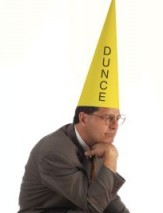
Photo by Christopher Schoenbohm.
Hold the phone. The Census Bureau has just released new numbers suggesting that America’s largest cities surged past the suburbs in 2011, growing at a faster rate than the ’burbs for the first time since Henry Ford started rolling out the cars that would fuel almost a century of sprawl.
If the numbers hold up (these are between-year estimates, not full-blown census counts) they represent a dramatic shift, and one that fits nicely into our favorite narrative about cities rising from rust while suburbs languish in big-box obsolescence.
Some highlights, care of the Associated Press:
- New Orleans, which saw its population shrivel in the mid-2000s due to Hurricane Katrina, saw the biggest rebound in city growth relative to suburbs in the last year, 3.7 percent vs. 0.6 percent. Atlanta, Denver, Washington, D.C., and Charlotte, N.C., also showed wide disparities in city growth compared to suburbs.
- Roughly 52 of the 73 cities with a population greater than 250,000 showed faster annual growth (or slower rates of losses) in 2011 than their average growth over the last decade. Cities switching from declines to gains included Pittsburgh, Milwaukee, Minneapolis, and St. Paul, Minn.
- The city of Chicago added nearly 9,000 people last year compared to annual losses of roughly 20,000 in the last decade, having benefited as fewer moved to the outlying exurban areas of Will and Kendall counties. Detroit saw much smaller losses last year, a sign that its 25 percent decline over the past decade has bottomed out.
Interestingly, demographers are treating these numbers with more caution than they did last time, when between-year stats suggested a full-blown urban renaissance was underway. Back then, in 2009, there was talk of “bright flight” as educated youngsters bolted from the ’burbs to live the good life in the city. Boosters felt the burn, then, when the final 2010 Census numbers landed, showing Americans were still firmly lodged in suburbia.
Yes, there are plenty of signs that young people are turning up their noses at the two-car garage and the lawn tractor in the ’burbs just because that life sucks: We’re putting off marriage and kids, biking more, and, in more and more cases, trading a driver’s license for a bus pass.
But there are also more practical concerns at play here. Namely, we’re broke. Here’s the AP:
Driving the resurgence are young adults, who are delaying careers, marriage and having children amid persistently high unemployment. Burdened with college debt or toiling in temporary, lower-wage positions, they are spurning homeownership in the suburbs for shorter-term, no-strings-attached apartment living, public transit and proximity to potential jobs in larger cities … Some sociologists are calling them “generation rent.”
Fair enough. But whatever it is that is causing young people to hunker down in cities, this hunkering is a “golden opportunity” for urban leaders, says Kenneth Johnson, a demographer at the University of New Hampshire who helped crunch the latest cities-vs.-suburbs numbers.
“Typically in cities, you’ll see a lot of young couples, and even young couples with small children, but not a lot of couples with school-age children,” Johnson says.
That’s because when you have children you lose all sense of what is good and right. Suddenly there’s this tractor beam dragging you toward the ‘burbs, where crime has historically been lower, schools are generally better, and you can banish the little troublemakers to the backyard if you need to. “Go mow the freaking lawn, kid!”
But now? The beam is apparently losing its strength. “What this [economy] has done is give cities a chance to have young people stay there longer,” Johnson says. “It’s an opportunity to convince them to stay.”
Word. Let’s build some more parks and bike paths and throw down a few more urban farms. Viva la revolucion!



